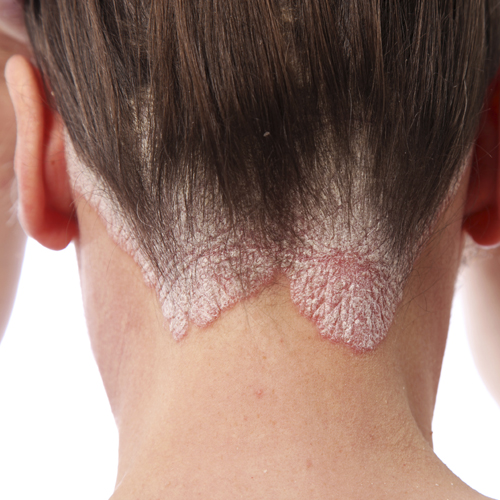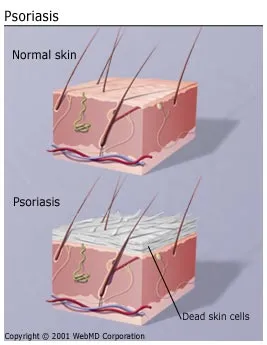
What Is Psoriasis?
Psoriasis is a chronic autoimmune skin condition characterized by the rapid buildup of skin cells. It leads to the development of thick, red, and scaly patches on the skin’s surface. These patches, known as plaques, are often itchy and can be painful. Psoriasis can occur on any part of the body, but it most commonly affects the elbows, knees, scalp, and lower back. The exact cause of psoriasis is unknown, but it is believed to involve a combination of genetic and environmental factors. While there is no cure for psoriasis, various treatments can help manage symptoms, including topical creams, oral medications, light therapy, and lifestyle modifications.
The symptoms of psoriasis vary depending on the type you have. Some common symptoms for plaque psoriasis — the most common variety of the condition — include:
- Plaques of red skin, often covered with loose, silver-colored scales; these lesions may be itchy and painful, and they sometimes crack and bleed. In severe cases, the plaques of irritated skin will grow and merge into one another, covering large areas.
- Disorders of the fingernails and toenails, including discoloration and pitting of the nails; the nails may also begin to crumble or detach from the nail bed.
- Plaques of scales or crust on the scalp
Psoriasis can also be associated with psoriatic arthritis, which leads to pain and swelling in the joints. The National Psoriasis Foundation estimates that between 10% to 30% of people with psoriasis also have psoriatic arthritis.


